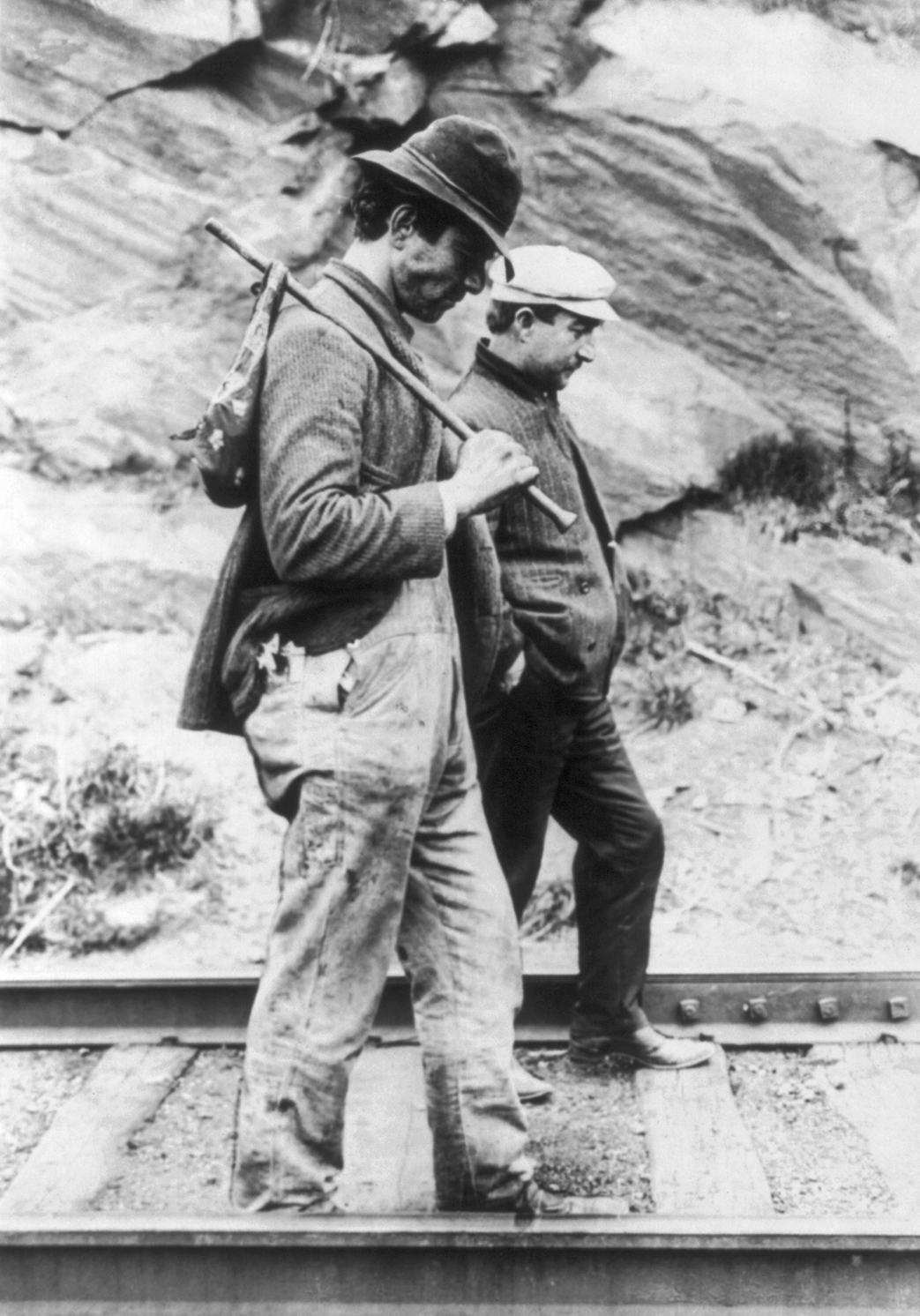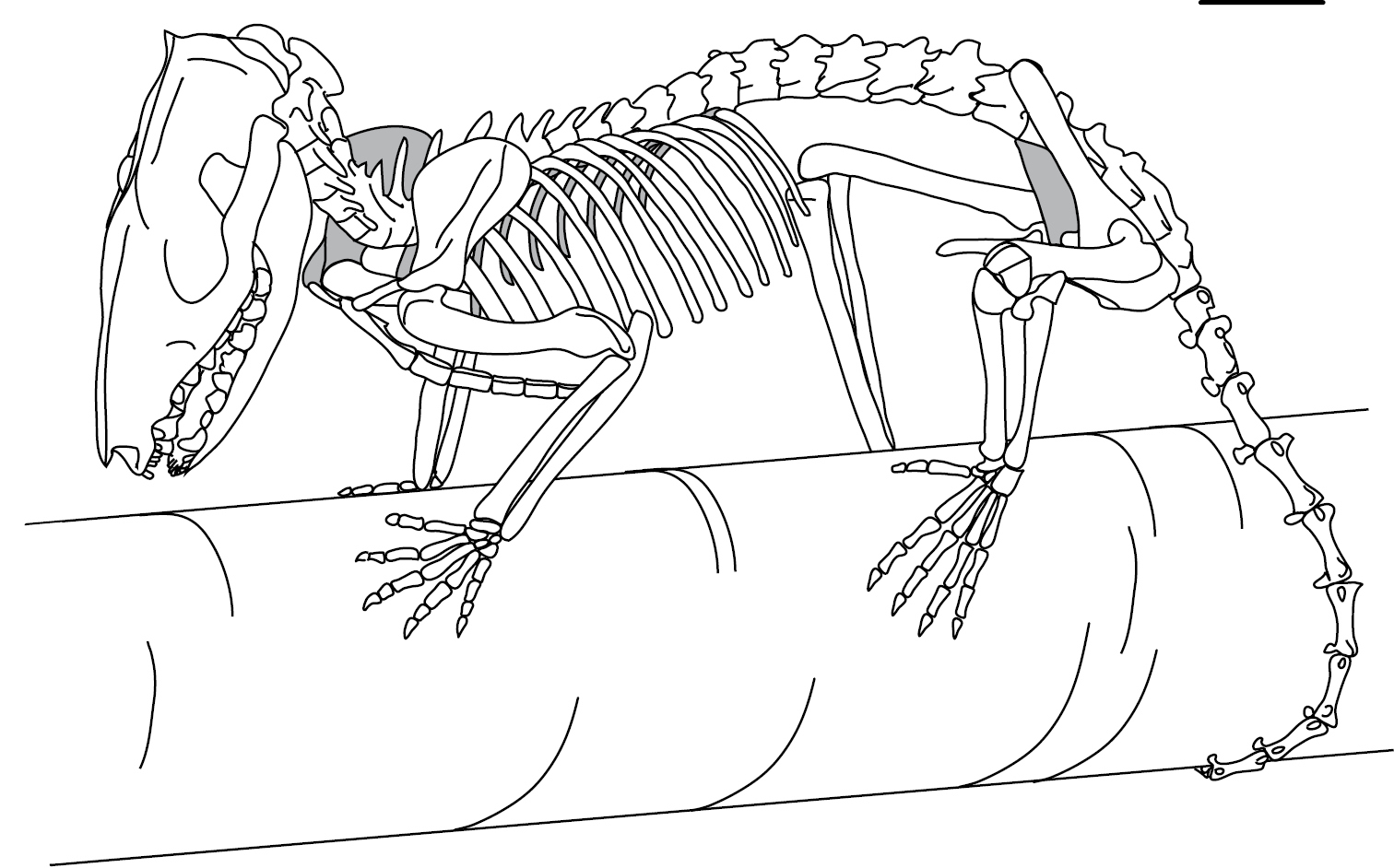|
Mulligan Stew (food)
Mulligan stew, also known as Hobo stew, is a type of stew said to have been prepared by American hobos in camps in the early 1900s. Another variation of mulligan stew is "community stew", a stew put together by several homeless people by combining whatever food they have or can collect. Community stews are often made at "hobo jungles", or at events designed to help homeless people. Description Mulligan stew is broadly defined as a stew made of odds and ends or any available ingredients. A description of mulligan stew appeared in a 1900 newspaper: Another traveler present described the operation of making a "mulligan." Five or six hobos join in this. One builds a fire and rustles a can. Another has to procure meat; another potatoes; one fellow pledges himself to obtain bread, and still another has to furnish onions, salt and pepper. If a chicken can be stolen, so much the better. The whole outfit is placed in the can and boiled until it is done. If one of the men is successfu ... [...More Info...] [...Related Items...] OR: [Wikipedia] [Google] [Baidu] |
Stew
A stew is a combination of solid food ingredients that have been cooked in liquid and served in the resultant gravy. A stew needs to have raw ingredients added to the gravy. Ingredients in a stew can include any combination of vegetables and may include meat, especially tougher meats suitable for slow-cooking, such as beef, pork, lamb, poultry, sausages, and seafood. While water can be used as the stew-cooking liquid, stock is also common. A small amount of red wine is sometimes added for flavour. Seasoning and flavourings may also be added. Stews are typically cooked at a relatively low temperature (simmered, not boiled), allowing flavours to mingle. Stewing is suitable for the least tender cuts of meat that become tender and juicy with the slow moist heat method. This makes it popular in low-cost cooking. Cuts having a certain amount of marbling and gelatinous connective tissue give moist, juicy stews, while lean meat may easily become dry. Stews are thickened by reduction ... [...More Info...] [...Related Items...] OR: [Wikipedia] [Google] [Baidu] |
Oyster
Oyster is the common name for a number of different families of salt-water bivalve molluscs that live in marine or brackish habitats. In some species, the valves are highly calcified, and many are somewhat irregular in shape. Many, but not all oysters are in the superfamily Ostreoidea. Some types of oysters are commonly consumed (cooked or raw), and in some locales are regarded as a delicacy. Some types of pearl oysters are harvested for the pearl produced within the mantle. Windowpane oysters are harvested for their translucent shells, which are used to make various kinds of decorative objects. Etymology The word ''oyster'' comes from Old French , and first appeared in English during the 14th century. The French derived from the Latin , the feminine form of , which is the latinisation of the Ancient Greek () 'oyster'. Compare () 'bone'. Types True oysters True oysters are members of the family Ostreidae. This family includes the edible oysters, which mainly belong t ... [...More Info...] [...Related Items...] OR: [Wikipedia] [Google] [Baidu] |
Shel Silverstein
Sheldon Allan Silverstein (; September 25, 1930 – May 10, 1999) was an American writer, poet, cartoonist, singer / songwriter, musician, and playwright. Born and raised in Chicago, Chicago, Illinois, Silverstein briefly attended university before being drafted into the United States Army. Though perhaps best known for his children's books, Silverstein did not limit his audience to children. During his rise to prominence in the 1950s, his illustrations were published in various newspapers and magazines, notably the adult-oriented ''Playboy''. He also wrote a satirical, adult-oriented alphabet book, ''Uncle Shelby's ABZ Book'', under the stylized name "Uncle Shelby", which he used as an occasional pen name. As a children's author, some of his most acclaimed works include ''The Giving Tree'', ''Where the Sidewalk Ends'', and ''A Light in the Attic''. His works have been translated into more than 47 languages and have sold more than 20 million copies.Rogak, Lisa. ''A Boy ... [...More Info...] [...Related Items...] OR: [Wikipedia] [Google] [Baidu] |
Louis Sachar
Louis Sachar ( ; born March 20, 1954) is an American young-adult mystery-comedy author. He is best known for the ''Wayside School'' series and the novel ''Holes''. ''Holes'' won the 1998 U.S. National Book Award for Young People's Literature"National Book Awards – 1998" . Retrieved January 26, 2012. (With acceptance speech by Sachar.) and the 1999 for the year's "most distinguished contribution to American literature for children". [...More Info...] [...Related Items...] OR: [Wikipedia] [Google] [Baidu] |
Hobo
A hobo is a migrant worker in the United States. Hoboes, tramps and bums are generally regarded as related, but distinct: a hobo travels and is willing to work; a tramp travels, but avoids work if possible; and a bum neither travels nor works. Etymology The origin of the term is unknown. According to etymologist Anatoly Liberman, the only certain detail about its origin is the word was first noticed in American English circa 1890. The term has also been dated to 1889 in the Western—probably Northwestern—United States, and to 1888. Liberman points out that many folk etymologies fail to answer the question: "Why did the word become widely known in California (just there) by the early Nineties (just then)?" Author Todd DePastino notes that some have said that it derives from the term "hoe-boy", coming from the hoe they are using and meaning "farmhand", or a greeting such as "Ho, boy", but that he does not find these to be convincing explanations. Bill Bryson suggests in '' Mad ... [...More Info...] [...Related Items...] OR: [Wikipedia] [Google] [Baidu] |
Great Depression
The Great Depression (19291939) was an economic shock that impacted most countries across the world. It was a period of economic depression that became evident after a major fall in stock prices in the United States. The economic contagion began around September and led to the Wall Street stock market crash of October 24 (Black Thursday). It was the longest, deepest, and most widespread depression of the 20th century. Between 1929 and 1932, worldwide gross domestic product (GDP) fell by an estimated 15%. By comparison, worldwide GDP fell by less than 1% from 2008 to 2009 during the Great Recession. Some economies started to recover by the mid-1930s. However, in many countries, the negative effects of the Great Depression lasted until the beginning of World War II. Devastating effects were seen in both rich and poor countries with falling personal income, prices, tax revenues, and profits. International trade fell by more than 50%, unemployment in the U.S. rose to 23% and ... [...More Info...] [...Related Items...] OR: [Wikipedia] [Google] [Baidu] |
Squirrel
Squirrels are members of the family Sciuridae, a family that includes small or medium-size rodents. The squirrel family includes tree squirrels, ground squirrels (including chipmunks and prairie dogs, among others), and flying squirrels. Squirrels are indigenous to the Americas, Eurasia, and Africa, and were introduced by humans to Australia. The earliest known fossilized squirrels date from the Eocene epoch, and among other living rodent families, the squirrels are most closely related to the mountain beaver and to the dormice. Etymology The word ''squirrel'', first attested in 1327, comes from the Anglo-Norman which is from the Old French , the reflex of a Latin word , which was taken from the Ancient Greek word (; from ) 'shadow-tailed', referring to the long bushy tail which many of its members have. The native Old English word for the squirrel, , survived only into Middle English (as ) before being replaced. The Old English word is of Common Germanic origin, cognat ... [...More Info...] [...Related Items...] OR: [Wikipedia] [Google] [Baidu] |
Opossum
Opossums () are members of the marsupial order Didelphimorphia () endemic to the Americas. The largest order of marsupials in the Western Hemisphere, it comprises 93 species in 18 genera. Opossums originated in South America and entered North America in the Great American Interchange following the connection of North and South America. The Virginia opossum is the only species found in the United States and Canada. It is often simply referred to as an opossum, and in North America it is commonly referred to as a possum (; sometimes rendered as ''possum'' in written form to indicate the dropped "o"). Possums should not be confused with the Australasian arboreal marsupials of suborder Phalangeriformes that are also called possums because of their resemblance to the Didelphimorphia. The opossum is typically a nonaggressive animal. Etymology The word ''opossum'' is borrowed from the Powhatan language and was first recorded between 1607 and 1611 by John Smith (as ''opassom'') ... [...More Info...] [...Related Items...] OR: [Wikipedia] [Google] [Baidu] |
Burgoo
Burgoo is a stew, similar to Irish or Mulligan stew, often served with cornbread or corn muffins. It is often prepared communally as a social gathering. It is popular as the basis for civic fund-raisers in the American Midwest and South. Etymology The term is of uncertain origin, possibly from the combination of the Welsh words for "yeast" and "cabbage". Oxford English Dictionary lists the origin as "Arabic: ''būrgu̇l'' cooked, parched, and crushed wheat, ultimately romTurkish ''bulgur''". History The first OED reference in English is from 1743 in J. Isham ''Observ. Hudsons Bay'', defined as "a soup or stew made with a variety of meat and vegetables, used especially at outdoor feasts. ''North American.''" A 1753 reference from ''Chambers's Cycl. Suppl.'' reads "Burgoo, a sea-faring dish", likely with associations to the Royal Navy and Merchant Navy (United Kingdom). A 1863 reference to G. A. Sala, ''Strange Adventures Capt. Dangerous'' (II.i.15) specifies meat as an ingr ... [...More Info...] [...Related Items...] OR: [Wikipedia] [Google] [Baidu] |
Meat
Meat is animal flesh that is eaten as food. Humans have hunted, farmed, and scavenged animals for meat since prehistoric times. The establishment of settlements in the Neolithic Revolution allowed the domestication of animals such as chickens, sheep, rabbits, pigs, and cattle. This eventually led to their use in meat production on an industrial scale in slaughterhouses. Meat is mainly composed of water, protein, and fat. It is edible raw but is normally eaten after it has been cooked and seasoned or processed in a variety of ways. Unprocessed meat will spoil or rot within hours or days as a result of infection with, and decomposition by, bacteria and fungi. Meat is important to the food industry, economies, and cultures around the world. There are nonetheless people who choose to not eat meat (vegetarians) or any animal products (vegans), for reasons such as taste preferences, ethics, environmental concerns, health concerns or religious dietary rules. Terminology Th ... [...More Info...] [...Related Items...] OR: [Wikipedia] [Google] [Baidu] |
Irish Stew
Irish stew ( ga, stobhach/Stobhach Gaelach) is a stew native to Ireland that is traditionally made with root vegetables and lamb or mutton, but also commonly with beef. As in all traditional folk dishes, the exact recipe is not consistent from time to time, or place to place. Basic ingredients include lamb and mutton, lamb, or mutton (mutton is used as it comes from less tender sheep over a year old, is fattier, and has a stronger flavour, and was generally more common in less-affluent times), as well as potatoes, onions, and parsley. It may sometimes also include carrots. Irish stew is also made with goat meat, kid. Irish stew is considered a national dish of Ireland. History Stewing is an ancient method of cooking meats that is common throughout the world. After the idea of the cauldron was imported from continental Europe and Britain, the cauldron (along with the already established spit (cooking aide), spit) became the dominant cooking tool in ancient Ireland with ovens b ... [...More Info...] [...Related Items...] OR: [Wikipedia] [Google] [Baidu] |






